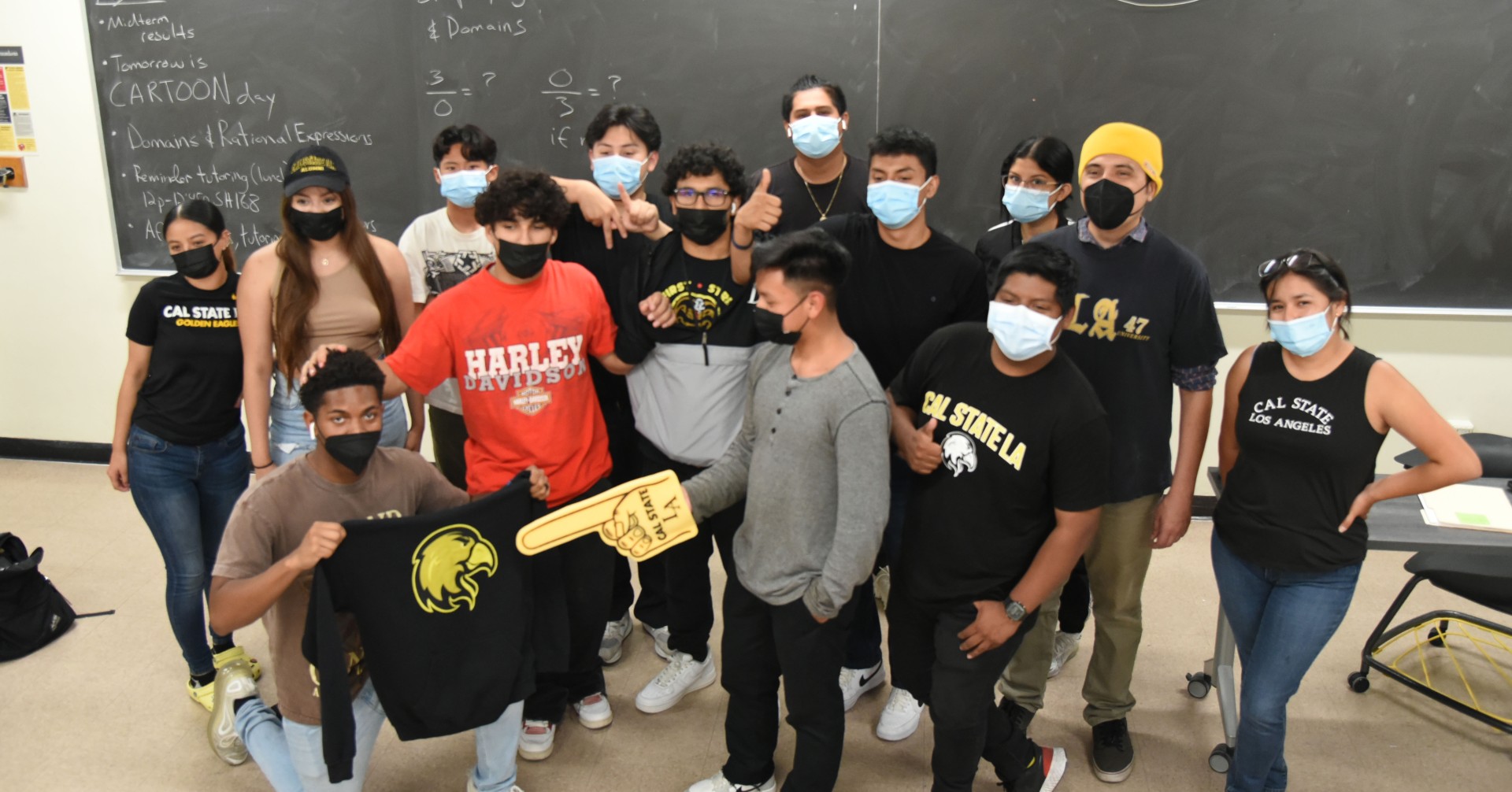EOP Summer Bridge, a six-week academic and social program provided to a population of about 140 students. These students are low-income, first-generation college freshmen entering Cal State LA through EOP as special admits. Summer Bridge provides them with a tailored experience that develops their academic skills, networking opportunities, and financial literacy. The program also facilitates a growth-oriented and empowered mindset as they transition from high school to college.
The educational components within Summer Bridge provided students with classroom settings in which to learn about voice and engage in equitable discourse on various aspects of their identities.
- CLS 1200 initiated conversations about factors of identity such as: race, ethnicity, gender, sexuality, socioeconomic status, immigration/documentation status, and the educational system. CLS professors assigned texts that challenged students to think critically about the impacts and intersectionality of these identity factors. The coursework provided students venues to reflect on their own experiences within the environment around them.
- Math included either a Statistics or a Pre-Calculus class for each student five days a week.
- Bi-weekly Supplemental Instruction (SI) and Growth Zone classes are tailored to increase content knowledge and develop students’ growth mindsets and good academic habits, as well as promote a sense of communal teamwork and accountability.
- Three Summer Bridge Assessment surveys reinforced and supplemented students’ identity development by providing opportunities to reflect on their positionalities within a school, as well as a larger social setting. The surveys supported student empowerment in continuing to think about and share these experiences as they evolved throughout the program.
Within Summer Bridge as a whole, a high emphasis is placed on communication skills; making use of campus resources; seeking support from peers, counselors, and faculty; and thinking critically about the ways a student can demonstrate control over their educational and career pathways while at Cal State LA and beyond.
Summer Bridge seminar instructors, courses and proggramming provided the following learning outcomes for students:
- Become familiar with EOP program services and other student support services available on campus.
- Develop positive relationships with their peers, EOP staff, and student staff.
- Build a sense of community within the Summer Bridge and EOP Program.
- Self-reflect on their personal goals, values, and personality.
- Become familiar with the General Education, University and Graduation requirements.
- Prepare a class schedule for fall registration.
- Understand MyCalStateLA student portal and Golden Eagle Territory (GET).
- Develop an educational success plan.
- Establish a time management schedule and financial budget.
- Foster their leadership, communication and problem-solving abilities.
CLS 1200
CLS 1200 Student Learning Outcomes facilitate students’ professional identity development by providing opportunities to increase critical thinking and literacy skills through interactive discourse, readings, and theoretical frameworks on topics such as societal structures like race/ethnicity, gender/sexuality, and class. These skills contribute to students’ understanding of professional/academic settings and promote their sense of confidence and belongingness within an academic institution while also challenging them to interrogate the factors that contribute to identity in a professional setting. Lessons required deep reflection with an intersectional approach to further develop students’ understanding of the many factors that contribute to their personal sense of identity as well as how these factors function within a larger social environment. Additional outcomes students fulfill due to meaningful engagement in the course include an ability to:
- Demonstrate understanding of problems and issues of the U.S. social, racial, and gender structures using the principles, methodologies, value systems and ethics employed in social scientific inquiry.
- Engage in ethical, respectful, and informed discussions about social identities like race, class, gender, as well as social justice efforts and cultural diversity issues.
- Demonstrate knowledge of ways to make change in local and global communities by identifying the construction of gender and race in the US. Math SLOs: EOP’s Math component supports students’ identity development by holding students’ accountable for their assignments, grades, and overall progress within the class.
Math
The Math courses as well as the SI and Growth Zone sessions emphasize consistency and good study habits while reinforcing the notion of internal focus of control, illustrating that students have agency over their own educational choices that contribute to their overall success in their academic and personal journeys. A strong emphasis on teamwork and valuing peers as important resources fosters students’ social identities. Some specific Student Learning Outcomes in Math that highlight ways students show their development in these areas are their ability to:
- Demonstrate their understanding of and ability to implement a variety of mathematical functions related to data measurement and graphing through written assignments, exams, presentations, and discussions.
- Work collaboratively in small and large group settings.
Three surveys were given throughout the program:
- Pre-Survey on the first day of Summer Bridge: 135 participants
- Mid-Survey 3 weeks: 136 participants
- Post-Survey at the end of week 6: 124 participants
